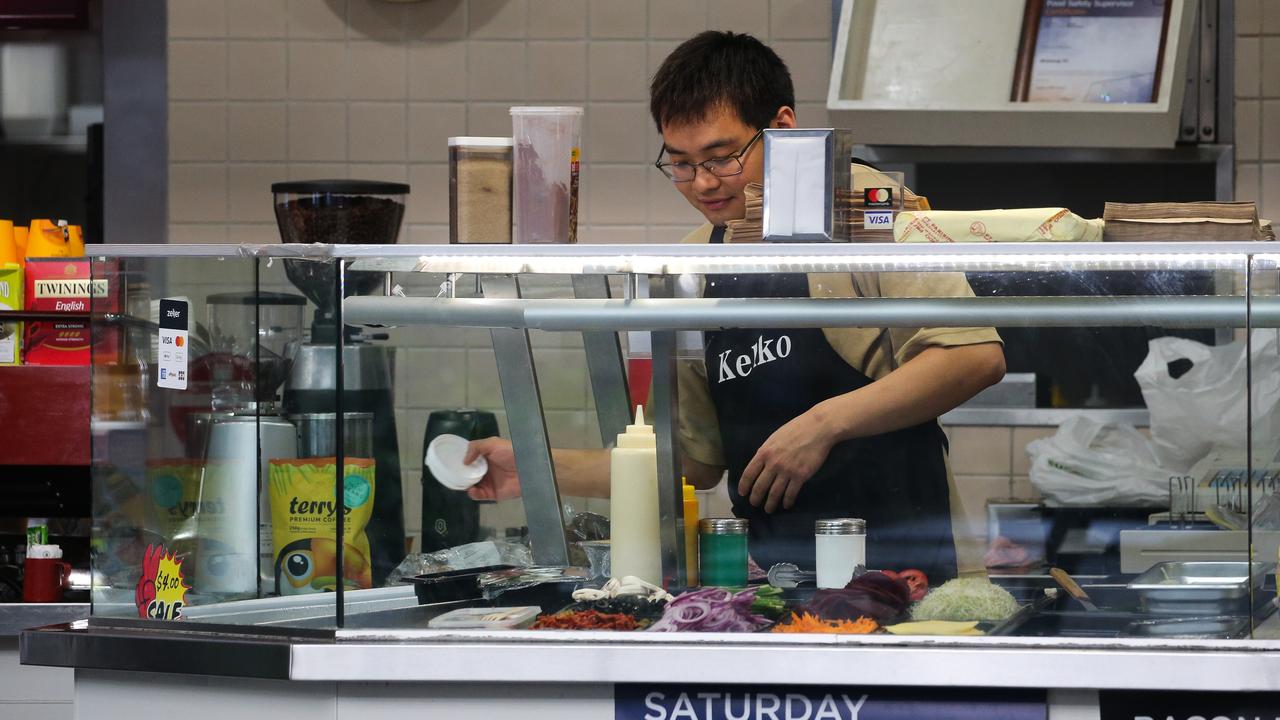‘Policy failure in one picture’: Fish and chip shop selling grey market cigarettes, NDIS services
A photo snapped inside a local fish and chip shop has perfectly encapsulated the “failure” of Australia’s economy.

Economy
Don't miss out on the headlines from Economy. Followed categories will be added to My News.
A viral photo snapped inside a local fish and chip shop has perfectly encapsulated the “failure” of Australian policy in one image.
Alongside burgers, chips and potato wedges, the photo shows handwritten signs pasted to the takeaway counter advertising various cigarettes — about 10 per cent cheaper than tobacconist prices — while a notice by the register reads, “Looking for NDIS plan manager??? Ask for my business card.”
X user @SardineTruther posted the picture on Saturday, writing, “Would you believe my local fish and chip shop not only sells extremely affordable grey market cigarettes, but also helps you for NDIS plan management? Australia truly has it all.”
Have your say in The Great Aussie Debate. Take the survey here:
One person commented, “Does it do student visa renewals and asylum claims with a side order of chips?”
“Does he offer real estate services though?” another asked.
“Amazing,” wrote Brian Marlow, executive director of the Australian Taxpayers’ Alliance.
Economist Steven Hamilton said the image showed “Australian policy failure in one picture”.
“Informal markets, two ways,” he wrote. “Tax something into oblivion to create an informal market. Subsidise something into the stratosphere to create an informal market. When are we going to get serious?”
Would you believe my local fish and chip shop not only sells extremely affordable grey market cigarettes, but also helps you for NDIS plan management?
— ð›ðšð›ðš'ð¬ ð¬ð©ðžðœð¢ðšð¥ ð›ð¨ð² (@SardineTruther) January 25, 2025
Australia truly has it all. pic.twitter.com/7Mfb8qEFvm
Mr Hamilton, assistant professor of economics at George Washington University and visiting fellow at the Tax and Transfer Policy Institute at the ANU, has previously argued Australia’s bloated public sector is “strangling the private sector to death”.
“In the last two calendar years, 87 per cent of all employment growth in the economy has been in the ‘non-market’ sector — public administration and safety, education and training, and healthcare and social assistance — despite it accounting for just 30 per cent of jobs,” he wrote in The Australian Financial Review last month.
“In the September quarter, it accounted for 91 per cent of all employment growth. When governments, as they often do, point to strong employment figures to boast about the jobs they personally ‘created’, I typically roll my eyes. Under this government, however, the claim is literally true.”
Much of that public spending has been driven by exploding growth in the $49 billion National Disability Insurance Scheme (NDIS).
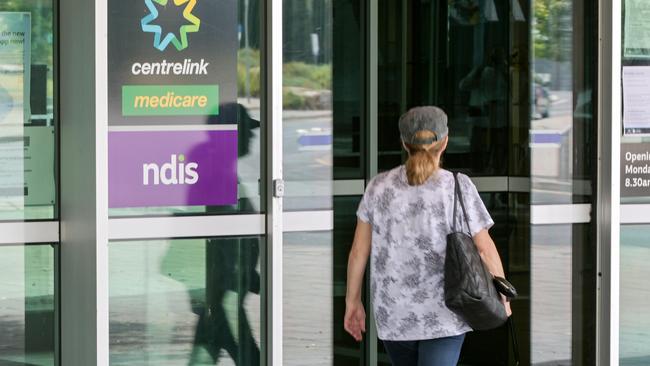
The Parliamentary Budget Office (PBO) has forecast that the cost of the NDIS is set to double in the next 10 years to $100 billion, overtaking the age pension.
In a parting shot at critics earlier this month, outgoing NDIS and Government Services Minister Bill Shorten boasted that more than 500,000 workers make an income from the scheme he co-designed.
“Since the formation of the NDIS, a new part of the Australian economy has been created,” Mr Shorten told The Sydney Morning Herald.
“The NDIS and its impact will be up there with universal superannuation and Medicare. This is an example of Australian exceptionalism — we look at the world’s problems and come up with a uniquely Australian answer.”
Mr Shorten, who stood down as the Member for Maribyrnong to take up a new role as Vice Chancellor of the University of Canberra, credited the scheme with helping keep Australia’s unemployment rate low.
By comparison, about 314,000 people work in the mining industry and 309,000 in agriculture.
“The NDIS employs more people directly than the mining industry,” Mr Shorten said. “It is an unsung hero of low unemployment and employment growth over the last decade since its creation.”
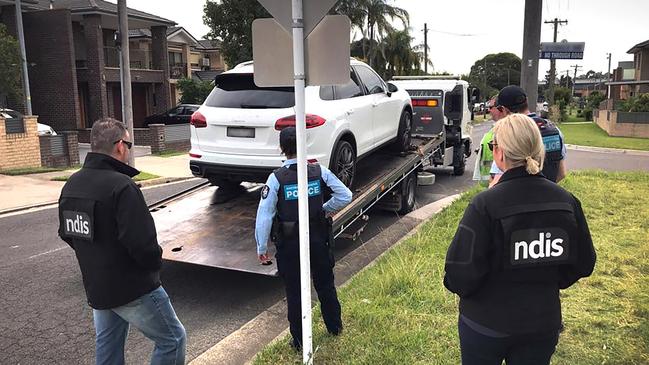
Australian Bureau of Statistics (ABS) figures show the care economy comprises 16 per cent of employment, up from 12 per cent a decade ago.
Veteran economist Chris Richardson told the newspaper the large growth likely meant fewer jobs were being created elsewhere.
“The concept is magnificent, but we have set up a whole bunch of incentives for state governments, for individuals, doctors, for the clients, for providers, that begs people to do the wrong thing, and they do,” he told the newspaper.
“It is heavily rorted. You want to do the right thing by people with disabilities, and you want to do the right thing by the taxpayer. The mix we currently have, to me, remains on an unsustainable trajectory.”
The NDIS has been plagued by ongoing reports of rorts and waste, despite efforts by the federal government to weed out fraud and bring down the rate of spending growth from 20 per cent to 8 per cent.
Last year, the NDIS integrity chief said nine out of 10 plan managers showed signs of fraud and that the justice system would be overwhelmed if all scams carried out under the scheme were prosecuted.
John Dardo told a Senate committee there were dozens of examples of organised crime groups abusing the system, as well as “pretty extreme” conflicts of interest such as family members paying each other for care.
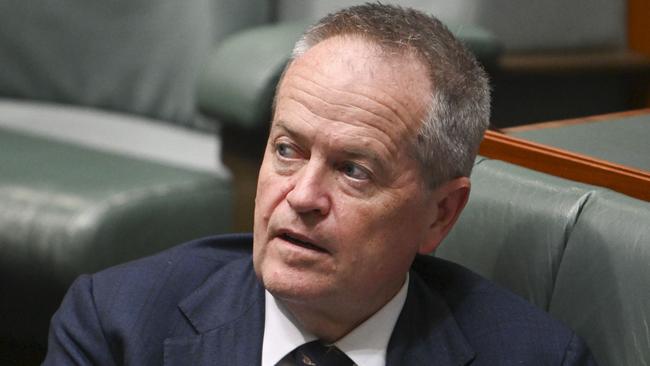
“These are not genuine providers, not people who should be in business, not people who should be allowed near government schemes of any kind,” he said, as reported by The Australian Financial Review.
Mr Hamilton noted that “in just a handful of years” the NDIS “has come to absorb $1 of every $50 in our economy”.
“The NDIS funds 610,000 recipients to the tune of $76,000 each on average per year, and under even the most wildly optimistic forecast this will double over the next 10 years,” he wrote.
“Just to fund it today, we’d need to take an additional $3400 a year from every single Australian taxpayer, and in 10 years — well, you do the maths. Seemingly on purpose, its creators have birthed a mass two-sided constituency that will fight to keep that gravy train flowing. But the scale of the waste is so outrageous that it’s hard to see the NDIS surviving.”
Matthew Camenzuli, a former member of the NSW Liberal Party state executive who will run against Energy Minister Chris Bowen in his safe Sydney seat of McMahon, previously called for an Elon Musk-style “Department of Government Efficiency” (DOGE) in Australia.
Mr Camenzuli said it was “unsustainable” that Australia was “carrying a public service that costs more than the tax base”.
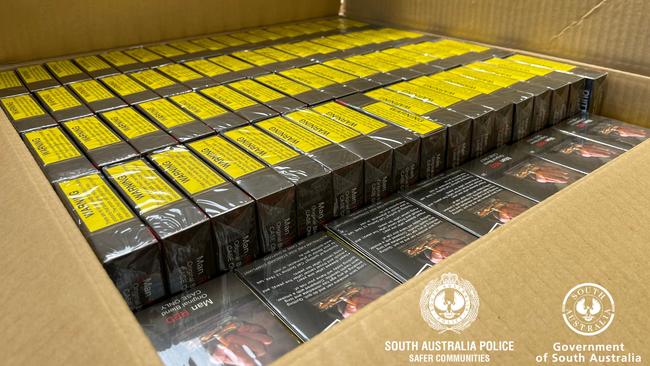
“Something’s got to give,” he told news.com.au.
“Australia is heavily over-regulated. Every time the government writes another document, the more rules we have, the more bureaucracy is necessary on the back end, and every level of government is writing more and more rules.”
The astronomical cost of cigarettes in Australia, where a pack that once cost $12 can now cost upwards of $50, is a result of ever-increasing tobacco excise, which now delivers about $10.5 billion to government coffers.
But it has also led to a boom in black- and grey-market alternatives, and the lucrative trade has sparked a surge in organised crime violence — marked by regular firebombings of rival tobacconists — dubbed suburban “tobacco wars”.
“There have been unintended consequences of this policy,” Australian Strategic Policy Institute (ASPI) policing expert John Coyne told The Guardian in November.
“It is no longer working so we need to adjust that.”
Theo Foukkare, chief executive Australian Association of Convenience Stores (AACS), previously blamed the federal government for creating an “environment that has made cigarettes so expensive that to save money, anyone trying to find savings in a household budget affected by the cost-of-living crisis, will switch to a cheaper, illegal substitute”.
“Why do we have all this crime?” he told news.com.au
“Number one it comes back to the significant demand for illegal products that are either cheap [like tobacco] or very difficult to get because they’re effectively prohibited [like vapes], number two we have next to no enforcement, and number three we have extremely weak fines.”
Originally published as ‘Policy failure in one picture’: Fish and chip shop selling grey market cigarettes, NDIS services





